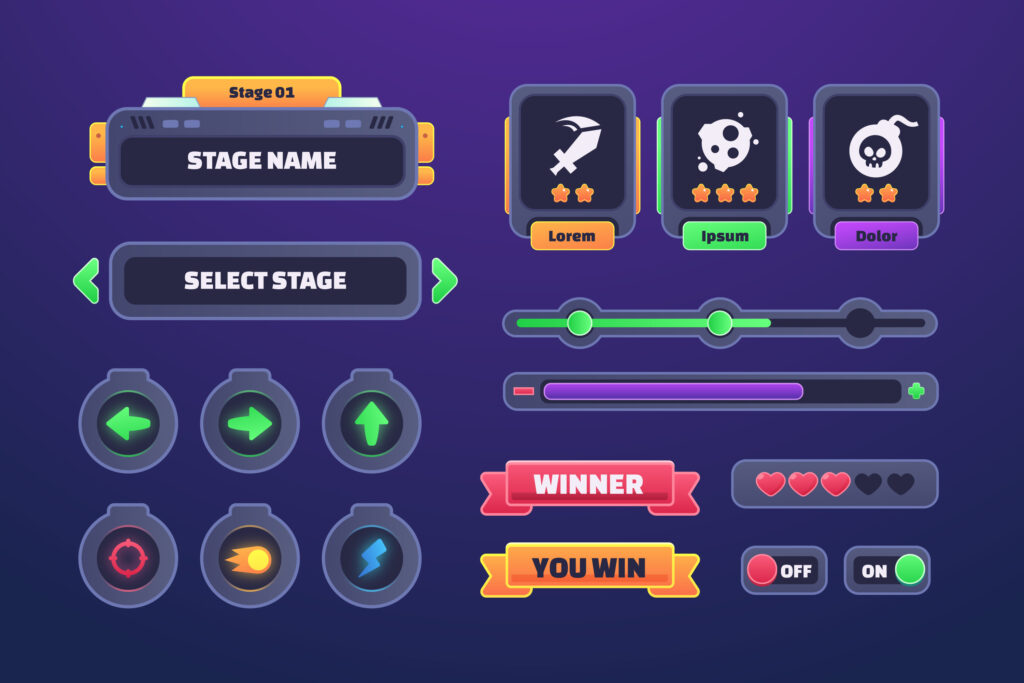Hiring is tough! HR professionals always seek new ways to pick the best candidates. Two trendy ideas are Game-based Assessment and Gamified Assessment, both using game-like features to make hiring more fun and engaging.
But what’s the difference? Both use game elements, but in different ways:
- A Gamified Assessment: Imagine traditional tests dressed up with points, badges, and leaderboards. They make taking the test less boring, but the content is still the same.
- A Game-based Assessment: Think actual games! Candidates play, solving problems and making choices that reveal their skills and knowledge.
Both methods can boost engagement, motivation, and the overall candidate experience. So, which one is right for you? It depends on your needs and goals. Let’s dig deeper!
Understanding Gamified Assessments and Game-Based Assessments
Gamified Assessment
Gamification refers to using game design elements in non-game contexts, such as recruitment and selection processes. They make assessments more attractive and user-friendly by incorporating game elements like points, badges, leaderboards, challenges, and rewards.
A gamified assessment dives deeper, crafting a playful, immersive environment. Imagine traditional tests with a game-like vibe, keeping the core psychology tests but adding that extra layer of fun. The core test stays the same, but the game-like environment can –
- Boost applicant engagement
- Keep candidates hooked to the test
- Reduce text anxiety
- Curb cheating
But adding sprinkles isn’t enough. Matching game elements to the assessment’s goals is key. Misaligned games can reward the wrong things, skewing results. Striking the right balance between fun and accuracy is crucial for effective gamified assessments.

Game-Based Assessment
Game-based assessments, or GBAs, go beyond simply incorporating game elements. Unlike a gamified assessment, they use the whole power of game design to evaluate candidates in new ways.
Instead of answering questions, players make choices inside a game. These choices and how they play reveal more about them than traditional tests. GBAs can tell you not just how good someone is at something, but also how they think, act, and behave within the gameplay.
This analysis can provide insights that traditional psychological assessments might miss, giving a deeper understanding of candidates’ cognitive abilities, behavioural tendencies, and personality traits.

Advantages of Gamified and Game-Based Assessments
Gamified and game-based assessments offer several advantages over traditional assessment methods:
a. Increased Engagement and Motivation
Both gamification and game-based assessments share a secret weapon for attracting and retaining top talent: engaging candidates through playful elements like points, badges, and leaderboards. These sparks of accomplishment and friendly competition motivate individuals to give their best, transforming the assessment experience from a chore into a rewarding challenge.
Ultimately, this boost in engagement leads to richer data and more accurate evaluations, helping you identify the hidden gems who will thrive in your company.
b. Improved Candidate Reactions
Gamified and game-based assessments ditch the tediousness and turn it into a playful experience. Gone are the long, dry questions and the feeling of being grilled. Instead, candidates dive into interactive challenges that feel more like a game than a chore. This spark of fun not only makes the whole process less stressful and more engaging, it also leads to happier, more invested applicants. They leave with a positive impression of your company that resonates long after the assessment is over.
c. Enhanced Measurement and Validity
Game-based assessments have the advantage of capturing a wealth of data through player choices and game para data. This data can provide valuable insights into candidate behaviour, decision-making processes, and cognitive abilities. By analyzing this information, assessments can yield more accurate and valid results, enhancing the hiring decision-making process.
d. Reduced Bias and Fairness
Traditional assessments, with their dry questions and subjective interpretations, can be breeding grounds for unconscious bias. A gamified assessment not only engages candidates but also promotes fairness and reduces bias in the hiring process.
Here’s how gamification levels up the playing field:
- Standardized Scoring: Game elements like points, badges, and leaderboards offer objective metrics to evaluate performance. This eliminates the potential for subjective biases based on race, gender, or other irrelevant factors.
- Controlled Environment: Game-based assessments create a structured and controlled environment where everyone faces the same challenges under identical conditions. This minimizes the influence of external factors that could skew results.
- Data-Driven Insights: The rich data generated during gameplay allows for deeper analysis of skills and potential, beyond traditional resume-based assessments. This data can be used to identify hidden gems who might have been overlooked due to unconscious biases.
- Reduced Anxiety and Stereotypes: The engaging nature of game-based assessments can ease test anxiety and mitigate the activation of stereotypes, leading to more authentic performance and a fairer evaluation of skills.
By embracing gamification, companies can not only improve the candidate experience but also create a fairer and more inclusive hiring process, attracting and selecting the best talent based solely on their merit and potential.
Gamified vs Game-Based Assessments – What Is Relevant For You?
The decision between game-based assessment and gamified assessment hinges on the organization’s specific recruitment objectives.
Let’s delve into these aspects, ensuring you’re well-equipped to select the approach that aligns with your organization’s recruitment objectives –
1. Recruitment Objectives and Job Roles
Begin by assessing your organization’s recruitment objectives. Are you primarily looking for candidates with strong problem-solving skills, adaptability, and strategic thinking, or is your focus on high-volume recruitment with the need to create an engaging initial experience? The nature of your job roles and your recruitment objectives should guide your choice.
2. Candidate Experience
Consider the experience you want to offer to candidates. If you aim to make the recruitment process engaging and interactive, gamified assessments with elements like points and challenges can be an excellent choice. However, for a more engaging and insightful evaluation, game-based assessments offer an immersive experience where every decision made by candidates is integral to the assessment.
3. Assessment Validity
Assessment validity is paramount. Ensure that the chosen approach aligns with your organization’s goals and the skills you want to measure. Game-based assessments provide a deep understanding of cognitive abilities, while gamified assessments focus more on engagement. Striking the right balance between playfulness and assessment validity is crucial.
4. Candidate Volume and Resources
Consider the number of candidates you typically deal with and the resources available. If you’re recruiting for high-volume roles and need to process a large number of applicants efficiently, gamified assessments can help create an initial positive impression. Game-based assessments may require more resources but can provide richer insights for critical roles.
5. Implementation and Customization
Think about how easily and effectively you can implement the chosen assessment approach. Can it be customized to fit your specific HR requirements and organizational culture? Game-based and gamified assessments should be flexible enough to align with your unique needs.
6. Data and Insights
Evaluate the kind of data and insights you want to gain from the assessments. Game-based assessments offer a deeper understanding of decision-making processes, cognitive abilities, and behavioural tendencies. Gamified assessments are more focused on engagement and motivation. Your choice should align with the depth of insights you seek.

Practical Considerations and Return on Investment
Organizations considering the implementation of gamification or game-based assessments should also evaluate practical considerations and the potential return on investment (ROI):
a. Cost and Resources
Assess the costs associated with developing and implementing gamified or game-based assessments. Consider the resources required for designing the assessments, training assessors, and maintaining the technology infrastructure.
b. Candidate Experience
Prioritize candidate experience throughout the assessment process. Conduct user testing and gather feedback to continuously improve the assessments’ usability and enjoyment for candidates.
c. Data Analysis and Interpretation
Develop strategies for analyzing and interpreting the data generated by gamified or game-based assessments. Utilize data analytics tools and expertise to derive meaningful insights and make informed hiring decisions.
d. Long-term Effects and ROI
Evaluate the long-term effects of gamification and game-based assessments on hiring outcomes. Measure the impact on candidate quality, employee performance, and organizational success. Calculate the return on investment to determine the assessments’ effectiveness and value for the organization.

Think about your goals: what are you trying to find out about your candidates? How do you want them to feel about the experience?
Then there’s the technical side: how many candidates will you be assessing? Is your system flexible enough to adapt to your needs?
No matter what you choose, remember the goal is to uncover hidden talent while giving candidates a great experience. Our tailored assessments are designed to align seamlessly with your recruitment objectives, providing you with a deeper understanding of your candidates’ capabilities.
Reach out to us today and embark on a journey to uncover the true potential of your candidates.